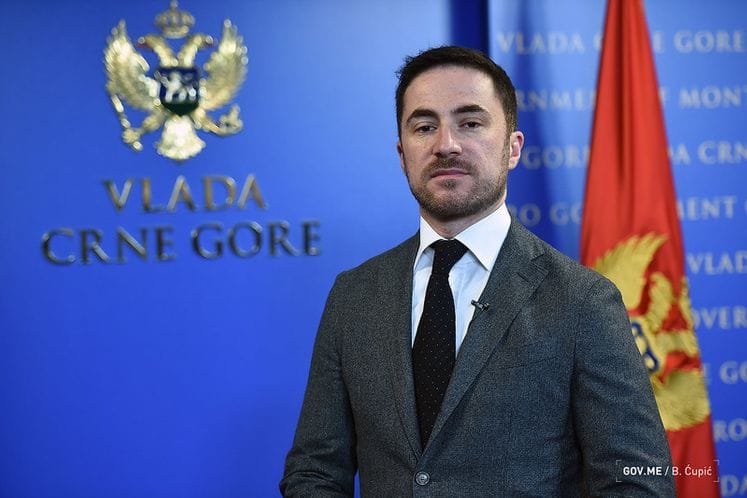- Government of Montenegro
EU recognises and condemns disinformation and fake...
Please note: The page below represents the archived content relating to the previous Government of Montenegro. Some of the information might be inaccurate or outdated.
Archive
EU recognises and condemns disinformation and fake news campaign, which seeks to foment divisions in Montenegro

Published on: Feb 20, 2020 • 11:08 PM Author: PR Service
Podgorica, Montenegro (20 February 2020) -- The region outlets used a divisive situation around the adoption of the Law on Freedom of Religion in Montenegro, to spread disinformation in order to foment divisions, resembling the practice already detected in Ukraine, Armenia and Georgia, reads an analysis of the European External Action Service (EEAS), published on the platform "EU against Disinformation," entitled "Disinformation sharpened tensions between Serbia and Montenegro".
The EEAS analysis reveals that sources of the false reporting included media based in Serbia (some of them state-owned), Russian owned in Serbian language media (Sputnik) and some Montenegro based portals. "They also often disseminated unverified manipulative content created by users of social networks and statements by Russian, Montenegrin and Serbian politicians and church representatives," the text reads.
It was pointed to some media that extensively wrote about the Serbian Orthodox Church property, specifying that it will "end up in the hands of the rival Montenegrin Orthodox Church," which they called a "false church" and "schismatic", claiming that the SOC properties will be rented, sold or made tourist resorts and attractions. The analysis also recognises the narrative affirming the conspiracy theory that the Government of Montenegro is planning to give away SOC's sanctities and relics to the Holy See and / or Order of Malta.
"Another tactic, exposed by some local fact checkers, was the use of articles from a 2015 version of a draft law which were not adopted by Montenegro and which are not part of the adopted law, to create a false picture of the effects of the new law," the text reads.
The EEAS also pointed out that fuelling conspiracy theories and wrongful messages circulated that the Government planned to invite 250 members of Kosovo's special police ROSU to help ensure public order and peace on Christmas Day. "The government reacted very quickly, announcing on Twitter that it was fake news. The new portals that broke this story, deleted it shortly thereafter. This disinformation came at a critical time, when tensions were high and many people were engaged in protests," according to the analysis.
The anti-NATO sentiment, as it was added, was used to increase the sense of conspiracy. "Media alleged that the NATO's counter – hybrid support team visiting Montenegro were tasked with 'taking down sites and portals that disobey the Montenegrin President's rule, controlling the internet, distorting the facts about seizure of the SOC shrines, manipulating mass protests by diminishing their numbers, blaming archbishops through mounted texts ..., " the EU's platform against disinformation reads.
The analysis of the EEAS concludes that the situation heavily stirred emotions within the country and partially sustained the protests that had started in December last year, right after the adoption of the Law, analysis of the EEAS concludes.
Ministry of Culture
PHOTO AND VIDEO: https://www.flickr.com/photos/vladacg/albums/72157713186759503
VIDEO: https://youtu.be/w4VYT0hUD2o
Related articles:
Parliament to decide on disposal of state property Mar 28, 2025
Press release from the Office of the Prime Minister Mar 28, 2025
Press release from the 74th Cabinet session Mar 27, 2025
Is this page useful?
